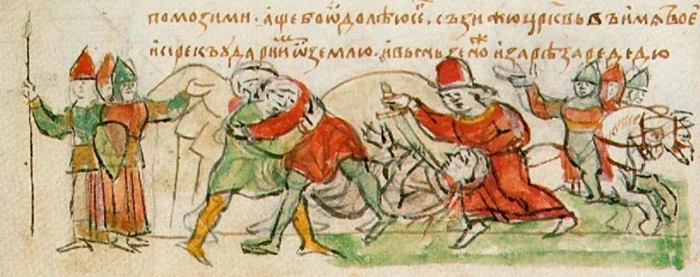Duel
Duel. Combat with deadly weapons between two persons. Dueling was known to some extent in Kyivan Rus’. It was considered to be a trial decided by God and was used to prove guilt or innocence. For example, according to Povist’ vremennykh lit, Rus’ prince Mstyslav Volodymyrovych killed the Kasogian khan Rededia in a duel in 1022. The combatants had to be equal in physical strength. Women could use a proxy. Lithuanian-Ruthenian law prohibited dueling without the consent of the grand duke, which was given only in exceptional cases. Dueling was punishable as a crime, but in cases of homicide or maiming the murderer did not pay the usual private fine called holovshchyna. Hetman state law strictly forbade dueling. Homicide resulting from a duel was treated as ordinary murder and was punished by death without private compensation to the victim's family. Neither the victim nor the executed murderer could be given a Christian burial. For this reason duels were very rare among the Ukrainian gentry and the Cossacks. Under the Russian Empire, in spite of the fact that it was forbidden, dueling was an accepted way of ‘defending one's honor’ among the nobility and army officers. The criminal code of the Ukrainian Soviet Socialist Republic did not recognize the institution of dueling. Homicide or maiming in the course of a duel was punished as common murder or assault.
[This article originally appeared in the Encyclopedia of Ukraine, vol. 1 (1984).]
